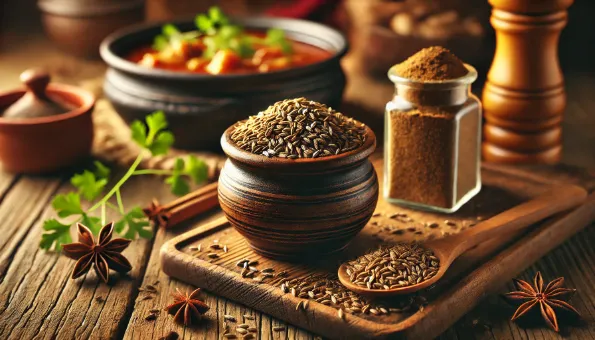Cumin: Aromatic Spice with Digestive and Immune Benefits
Cumin is a warm, earthy spice rich in antioxidants, iron, and compounds that support digestion and immunity.

What Is Cumin?
Cumin (*Cuminum cyminum*) is a flowering plant in the parsley family. Its dried seeds are used whole or ground as a spice, known for their warm, earthy aroma and slightly nutty, peppery taste.
Nutritional Profile
- **Iron:** Important for red blood cell production
- **Antioxidants:** Flavonoids and phenolic compounds help fight oxidative stress
- **Fiber & essential oils:** Support digestion
Health Benefits
- **Digestion:** Stimulates enzymes that improve digestion
- **Immunity:** Antioxidant and antimicrobial effects
- **Iron source:** Supports energy and prevents anemia
- **May aid weight management:** Some studies show improved fat metabolism
Potential Downsides
Excessive intake may cause heartburn or interact with blood-thinning medications. Moderation is recommended.
How to Use
Toast whole seeds in a dry pan to release aroma, then use in curries, stews, spice blends (like garam masala), or sprinkle ground cumin over roasted vegetables, hummus, or soups.
Summary
Cumin is a versatile spice that adds depth of flavor while supporting digestion and providing antioxidants and iron.
- 1. Cumin
sjeme kima (Cuminum cyminum), koristi se cijelo ili mljeveno kao začin

